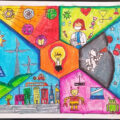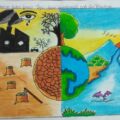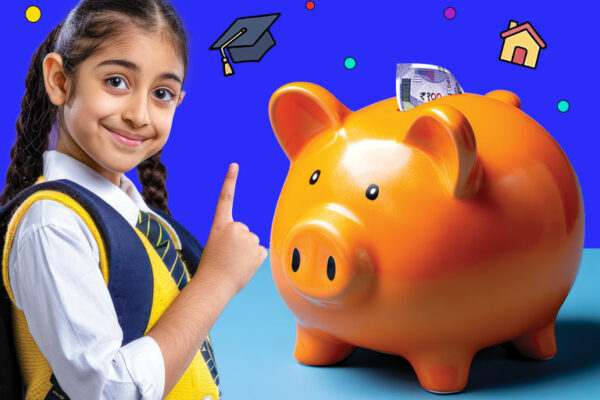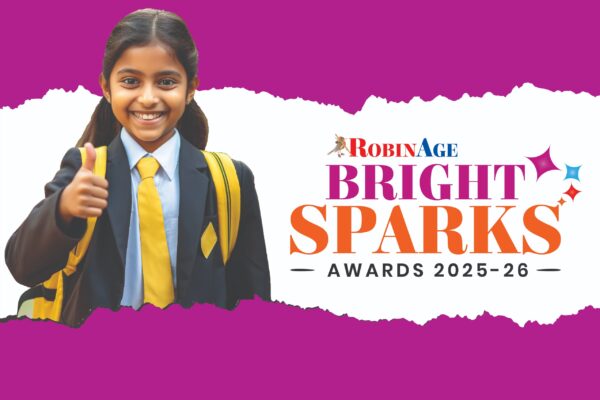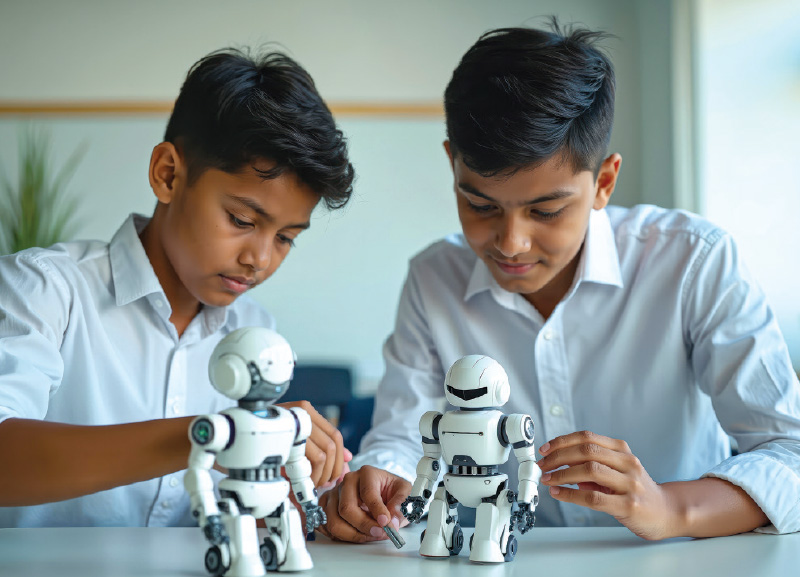
August 16, 2025
DR ROSEMIN BELIM, PRINCIPAL
Parikrama Public School, Ahmednagar

Encouraging innovation and entrepreneurial skills from an early age is essential in preparing children to face an ever-evolving world. It nurtures creativity, builds confidence and teaches them to take calculated risks—skills that are not only vital for future entrepreneurs, but also for responsible problem-solvers and leaders. When children are given opportunities to think independently and explore their ideas, they learn resilience and adaptability. Schools can collaborate with innovation labs, local entrepreneurs or educational startups to conduct workshops, mentorship sessions and experiential learning programmes. Incorporating project-based learning and real-world challenges into the curriculum can also help spark an innovative mindset from the ground up.
ANJALI NEGI, VICE PRINCIPAL
Indus Altum International School, Belagavi

I believe it’s essential to nurture future-ready competencies in children because the world they’re growing into is unpredictable and competitive. Encouraging an entrepreneurial mindset helps them make independent decisions and grow more resilient in the face of failure. Entrepreneurship isn’t just about launching businesses; it’s about developing design thinking that applies to all aspects of life. I see entrepreneurial education as the key to helping children design lives they love, no matter how the world evolves. Children should be nurtured to develop a growth mindset and global awareness with emphasis on community engagement. Blending technical skills with emotional intelligence empowers them to resist materialism and make ethical choices. Additionally, internships provide real-world exposure that further strengthens students’ future-ready skills.
ASHISH ARORA
Senior Vice President, Cambridge University Press and Assessment, Delhi

How can school-led innovation drive India’s development?
School-led innovation is fundamental to India’s development journey because it cultivates problem-solvers at the formative stage. The National Education Policy 2020 acknowledges the need for this shift, but real transformation lies in how it’s implemented. By integrating innovation labs, startup clubs and hands-on learning, schools embed entrepreneurship as a mindset, not just a career path, shaping how students think, solve problems and lead from an early age. With a rise in student-led startups, the early economic impact is evident. School-led innovation shapes not just future founders, but adaptive citizens ready to solve real-world challenges.
How can the government help in sparking student innovations and entrepreneurship?
The government plays a critical role in shaping the values that define learning. Through initiatives like Atal Tinkering Labs and PM SHRI Schools, the foundation for experiential, problem-solving-based education is already being laid. Public-private partnerships can further enhance education by integrating global best practices and innovative assessments into learning. Scalable models can help children prepare for real-world opportunities and challenges.
How can children build an entrepreneurial mindset?
Early practical exposure to real-world problems is the first step in developing an entrepreneurial perspective in learners. Young learners start to view challenges as chances for innovation rather than obstacles when they participate in design-thinking activities, social impact initiatives or startup simulations. Integrating skills like problem-solving, analytical thinking and collaboration into the curriculum is crucial at this level.
What’s an example of a student-led innovation that could lead to meaningful impact?
We recently hosted an event called Launchpad in Mumbai to showcase ideas developed by students as part of our ‘Young Pioneers’ programme. Among the impactful projects that were showcased through the Launchpad event was ‘AURA’ from Dr Shamanur Shivashankarappa National Public School, Davangere. AURA is a fashion assistant application designed to help users make eco-conscious style choices.
Another standout idea was IntelliKid by Bharati Vidyapeeth Rabindranath Tagore School of Excellence, Pune. This innovation reimagines the smartphone for children. It functions like a ‘growing companion’, focussing on learning and adapting to a child’s developmental stages.
Another noteworthy innovation was a real-time speech-to-Braille wearable device for individuals who are deaf and blind by Foundation School, New Delhi.
Could you tell us more about the ‘Young Pioneers’ programme?
‘Young Pioneers’ is a programme designed for students in classes 7 to 10, developed by Cambridge University Press and Assessment, an academic publishing and assessment body, in collaboration with Get Set Learn, a startup focussed on building future-ready capabilities in students. By integrating foundational business concepts into an experiential learning model, the programme fosters future-ready skills that nurture innovation and empower young learners to transform ideas into meaningful action.
The programme cultivates entrepreneurial skills and is structured as a three-year pathway– beginner, intermediate and advanced–allowing schools and students to engage for just one year if they choose. Each level is self-contained yet designed to build progressively for those continuing through the full programme. The curriculum enables learners to build ideas and business models, consolidating elements like design thinking, minimum viable product (MVP) development, product structuring and storytelling for impactful pitches. Over three years, students cultivate key 21st-century skills such as creativity, leadership and systems thinking while creating a tangible portfolio and gaining valuable feedback from experts. The programme involves learners attending startup founder-led masterclasses, receiving mentorship and pitching ideas to solve real-world challenges.
BRIGHT SPARKS OF STUDENT INNOVATION
- Nysa Doshi, Class 4, Podar International School, Mumbai
Nysa founded Nysa Huletics, a venture where she shares her passion for hula hooping with students across Mumbai to promote confidence and fitness among children. - Vedveer Sharma, Class 6, Next School, Mumbai
Vedveer organised a ‘Save the Soil’ campaign that reached 26 housing societies and 14 corporates and was featured by Inditrade Capital on World Environment Day. - Aniruddha Iyer Bali, Class 8, The Doon School, Dehradun
Aniruddha started a periodical called ‘The World This Week’, featuring positive global news. - Mitansh Bagga, Class 8, Learning Paths School, Mohali
While still in class 5, Mitansh created a Wearable Sign Language Translator to help the hearing-impaired communicate more effectively. In class 6, he created a homemade computer and in class 7, he worked on a unique AI-powered smartwatch. - Reya Jain, Class 10, CHIREC International School, Hyderabad
Reya came up with the idea of an ed-tech platform, which she pitched to the Indian School of Business, and is also working towards helping women who own small-scale businesses. - Armaan Maheshwary, Class 11, Learning Paths School, Mohali
Armaan developed Care-Full, a 100% biodegradable sanitary pad with an integrated disposal bag while he was in class 10.
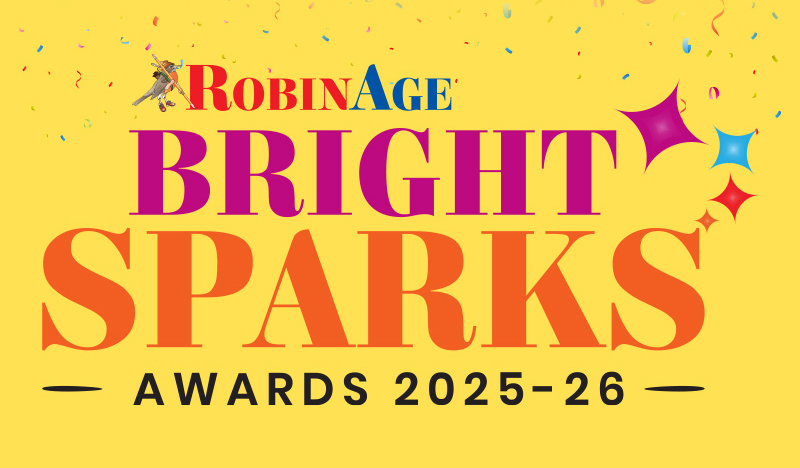
STAY TUNED! ENTRIES FOR THE ROBINAGE BRIGHT SPARKS AWARDS 2025-26 WILL OPEN IN NOVEMBER 2025!
REFLECTION: Debate Time
List 3 ways in which school-led innovation helps India’s development journey.



















